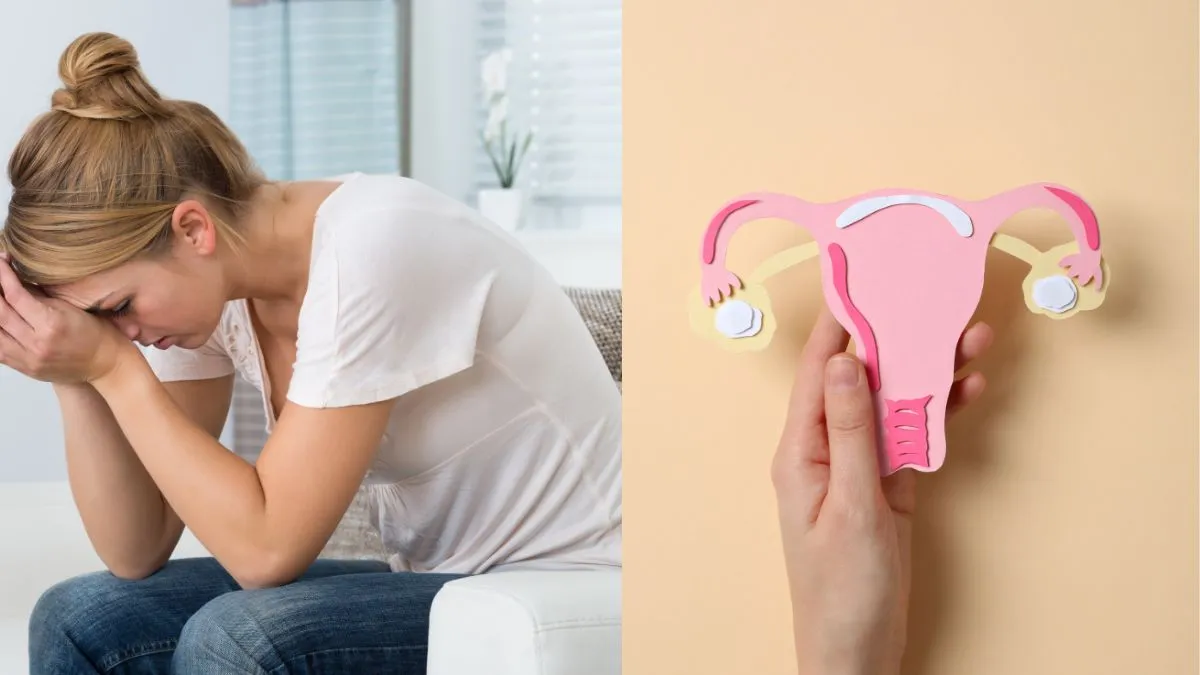- By Bornika Das
- Tue, 24 Jun 2025 04:00 PM (IST)
- Source:JND
In today’s fast-paced world, women often juggle multiple responsibilities, be it work, relationships, family or personal aspirations. Amid this constant hustle, stress and mental health challenges have quietly become a part of everyday life. What many don’t realise, however, is how deeply these emotional and psychological pressures can influence a woman’s reproductive and sexual health. From irregular menstrual cycles to reduced libido and fertility concerns, chronic stress can silently disrupt the body’s delicate hormonal balance. But how exactly does this happen?
To understand the connection, it's important to look at how the body responds to stress on a physiological level. When exposed to long-term stress, the body increases its production of cortisol, a hormone designed to help us survive immediate threats. But when cortisol levels remain elevated over time, it can interfere with the production of key reproductive hormones like estrogen and progesterone. This hormonal imbalance can lead to menstrual irregularities, missed periods, mood swings and even complications with conception. In conversation with The Daily Jagran, Dr Saurish Hegde, MD( Social and preventive medicine) - Public health specialist, Author, Founder of Food chain campaign, shares the complex relationship between mental well-being and reproductive health and how to manage it.
In simple words, stress and mental health are inversely proportional to women’s reproductive and sexual health. Although this is a generalised statement and it varies with individuals, we can say that physiologically and psychologically, stress is detrimental to women’s reproductive health.
ALSO READ: What Are The 6 Wonder Ayurvedic Herbs To Manage Stress, Anxiety And Depression?
Stress and burden usually lead to a rise in the cortisol levels in the body, which is a survival hormone. Cortisol is a hormone which usually triggers the metabolic system and catalyses the release of glucose into the bloodstream. Dr Saurish Hegde states, “It means that the situation requires the body to perform activities. Like all beings on this planet, our bodies can only heal with rest, constant, rigorous activities will only cause more damage.”
So if the stressor happens for chronic durations, months and years together, it causes a decrease in the oestrogen levels in the body and causes irregular frequency of menstruation/ periods. Hence, this could lead to prolonged cycles or shorter cycles.
-1750718301128.jpg)
Stress Affects Reproductive Health Of Women (Image Credits: Canva)
Dr Saurish Hegde says, “The irregularities or unforeseen changes cause a shift in the routine, which makes for extra tasks throughout the day, which may make them feel unproductive and stressed. It could play as a risk factor in bringing down the libido( desire for sexual activity) of the person.”
ALSO READ: How Your Desk Job May Be Hurting Your Fertility? Know From A Doctor
The remedies for this condition would be to tackle the risk factor causing the stress, for example, it may be long working hours, decreased sleep or shift in sleep-wake cycle( circadian rhythm), imbalanced diet, excessive screen time or family problems.
Getting creative with your day, relaxing activities like meditation and talking to friends will help to reduce the stress and improve reproductive health.

